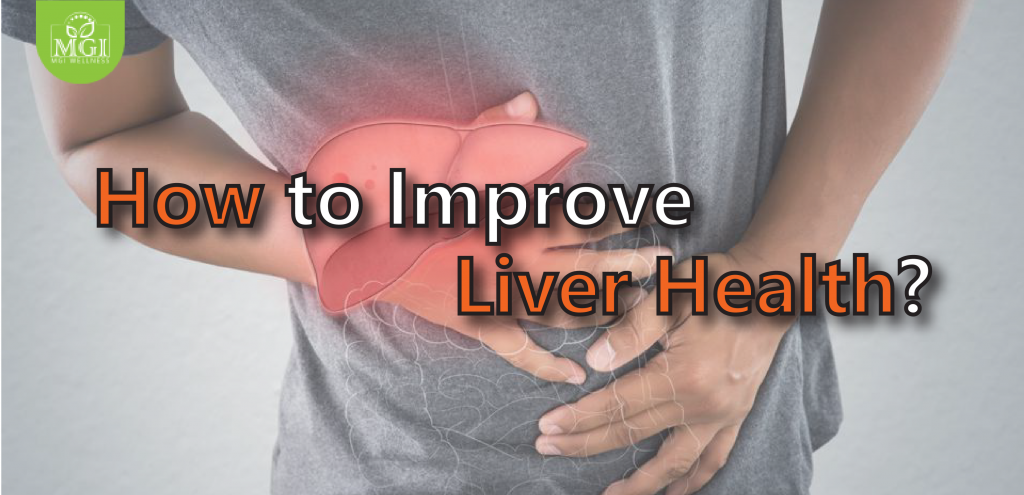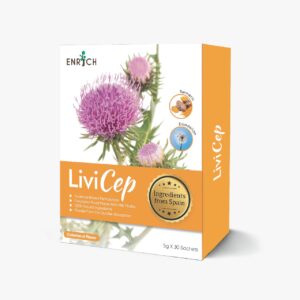Wellness
What Can You Do to Protect Your Liver?
The liver is a complex chemical factory that works 24 hours a day. It performs over 500 functions that are vital to life including providing body with energy, fighting off infections, toxins and regulating hormones.
Moreover, the liver is also a key player in your body’s digestive system. Everything you eat or drink, including medicine, passes through it. In short, your liver is a strong organ and it works hard to protect your health. If your liver stops working, so do you !
Unfortunately, the liver is very slow to complain. Therefore, people who have problems with their liver are frequently unaware due to no symptoms. The liver is such a determined organ that it will continue working even when two-thirds of it has been damaged. Some possible symptoms of poor liver health include chronic fatigue, jaundice of eye and skin, loss of appetite, fluid retention at lower extremities, itchy skin and mood swings.
Stop taking the liver for granted !
In Malaysia, diseases of the liver are on the increased. They are among the top 10 causes of mortality in Malaysia. Common causes of liver diseases are viral infections, fatty liver, alcohol, autoimmune conditions and inherited conditions. In particular, fatty liver has reached an epidemic proportion in Malaysia given that one quarter of the adult population suffers from the disease.
The liver is an organ you could easily trash if you do not take good care of it. What we eat and how we live our lives do affect liver health, even without us noticing. By learning more about your liver and how you can keep it healthy, you may actually help improve liver health and reduce the risk of developing liver diseases.
It is time to rejuvenate your liver
The good news about the liver is that it has the ability to regenerate and to heal itself if we really take care of it. Using a combination of diet and lifestyle changes , you can help protect and improve your liver health, allow it to do what it does best.
- Maintain a Well-Balanced Diet
A well-balanced diet includes a variety of fresh whole foods including fruits and vegetables, whole grains (brown rice, wholemeal bread, quinoa), protein sources (legumes, lean meats, tofu, eggs), dairy (low-fat yogurt, milk and cheese) and sources of healthy fat (nuts, avocado, fatty fish).
It is crucial to limit the amount of processed , high fat and high sugar foods. A high intakes of sugar (fructose) sweetened beverages and fatty foods high in saturated fat have been associated with an increased risk for developing a fatty liver.
- Maintain a Healthy Body Weight
Being overweight or obese has been linked to deposits of fat in the liver. This leads to chronic inflammation and scarring of the liver (known as cirrhosis). Body mass Index (BMI) greater than 23kg/m² is classified as overweight while BMI equal or above 25kg/m² is obese.
According to The National Health and Morbidity Survey 2019, one in two adults in Malaysia are either overweight or obese. Fatty liver rate has been estimated to be about 30%.
A study in the JAMA Internal Medicine found that people who lost just 3% to 6% of their body weight reduced their liver fat levels by 35% to 40%.(1)
- Exercise Regularly
Regular, moderate physical activity lead to a healthy body weight and also promotes normal liver health. Aim for 150 minutes of activity weekly, or 30 minutes five times a week. You can make simple changes like taking parking as far away from office doors as possible, taking the stairs instead of escalators or elevators or going for a walk after dinner instead of sitting watching TV.
Scientific data showed that performing a combination of aerobic exercise (brisk walking, jogging, hiking, cycling) and resistance training (pushup, chin-up, sit-up, body squat) appear to diminish the amount of fat stored in liver cells.(2) In a 4-week study, obese individuals who trained for 30-60 minutes, five days per day, saw an impressive 10% loss in liver fat, even though their weight remained unchanged. (3)
- Limit or Eliminate Alcohol
Your liver treats alcohol like any other toxic chemical. Too much alcohol can damage liver cells and lead to fatty liver, fibrosis, and the deadly disease, cirrhosis. Malaysia, though a small country, is the tenth largest consumer of alcohol in the world.
“The National Health and Morbidity Survey (NHMS) 2019 claims that 1 in 2 Malaysian drinkers binge drink , which means 6 or more standard drinks per sitting at least once a week.”
The intake of alcohol should be limited to no more than 1 standard drink per day for women and no more than 2 standard drinks per day for men. A “drink” being equivalent to 150ml wine (12% alcohol), 285ml beer (5% alcohol), or 30ml of spirits (40% alcohol).
- Stop Smoking
Smoking can increase the risk of both liver cancer and cirrhosis of the liver. The toxic chemicals in tobacco smoke can cause inflammation and eventual cirrhosis. Smoking
also promotes the production of cytokines, chemicals that cause even more inflammation and damage to liver cells.
A study conducted on the relation of smoking and risk of liver cirrhosis showed that 12% of liver cirrhosis cases among women and 6 % of liver cirrhosis cases among men have been attributed to smoking.(4)
- Support Healthy Liver Function with Herbs
Many herbs such as milk thistle seed and turmeric have traditionally been used to promote normal processes of the liver and offer natural support for detoxification.
Silymarin from milk thistle seed is one of the best-researched herbal supplements that focused on promotes normal liver cells regeneration and supports the detoxification process.
A double blind, prospective, randomized study was performed to determine the effect of silymarin on the outcome of patients with cirrhosis. Of the 170 patients with cirrhosis, 87 were treated with silymarin 420 mg/day and 83 received placebo for at least 24 months, with a median observation period of 41 months.The 4 year survival rate was 58% in silymarin treated patients and 39% in the placebo group. (5)
Curcumin in turmeric possesses powerful antioxidant effects and lowers levels of liver enzyme (marker of liver damage) alaine aminotransferase (ALT) and aspartate aminotransferase (AST).
A study included 60 adults with elevated alanine aminotransferase (ALT) levels. The participants were randomly assigned to take three grams of turmeric powder, three times daily or placebo for 12 weeks. Compared to the control group, the turmeric group had significantly lower levels of ALT (−26.5% vs. -3.4%) and AST (−23.1% vs. -2.2%).(6)
In summary, when something goes wrong with the liver, it can have a serious effect on almost every other organ in the body. The liver can be a very forgiving organ, but it has its limits. Fortunately, you can easily take care of your silent partner by practicing healthy lifestyle and avoiding risky behaviors that can lead to liver cell damage and diseases.
References:
- Dimitrios A. Koutoukidis et al. Association of Weight Loss Interventions With Changes in
Biomarkers of Nonalcoholic Fatty Liver Disease. JAMA Intern Med. 2019 Sep; 179(9): 1262–1271.
- Van der Windt. D.J.al. The Effects of Physical Exercise on Fatty Liver Disease. Gene
expression. ;18(2), 89–101.
- H. et al. Endurance Exercise Reduces Hepatic Fat Content and Serum Fibroblast Growth
Factor 21 Levels in Elderly Men. The Journal of Clinical Endocrinology & Metabolism. 2016 ;101(1), 91-198.
- Dam MKet al. Smoking and risk of liver cirrhosis: a population-based cohort study. Scand J
Gastroenterol. 2013 May;48(5):585-91.
- Anton Gillessen et al. Silymarin as Supportive Treatment in Liver Diseases: A Narrative Review.
Advances in Therapy volume 37, pages1279–1301(2020)
- Sang-Wook Kim et al. The effectiveness of fermented turmeric powder in subjects with elevated
alanine transaminase levels: a randomised controlled study. BMC Complement Altern Med. 2013; 13: 58.
Health Food


